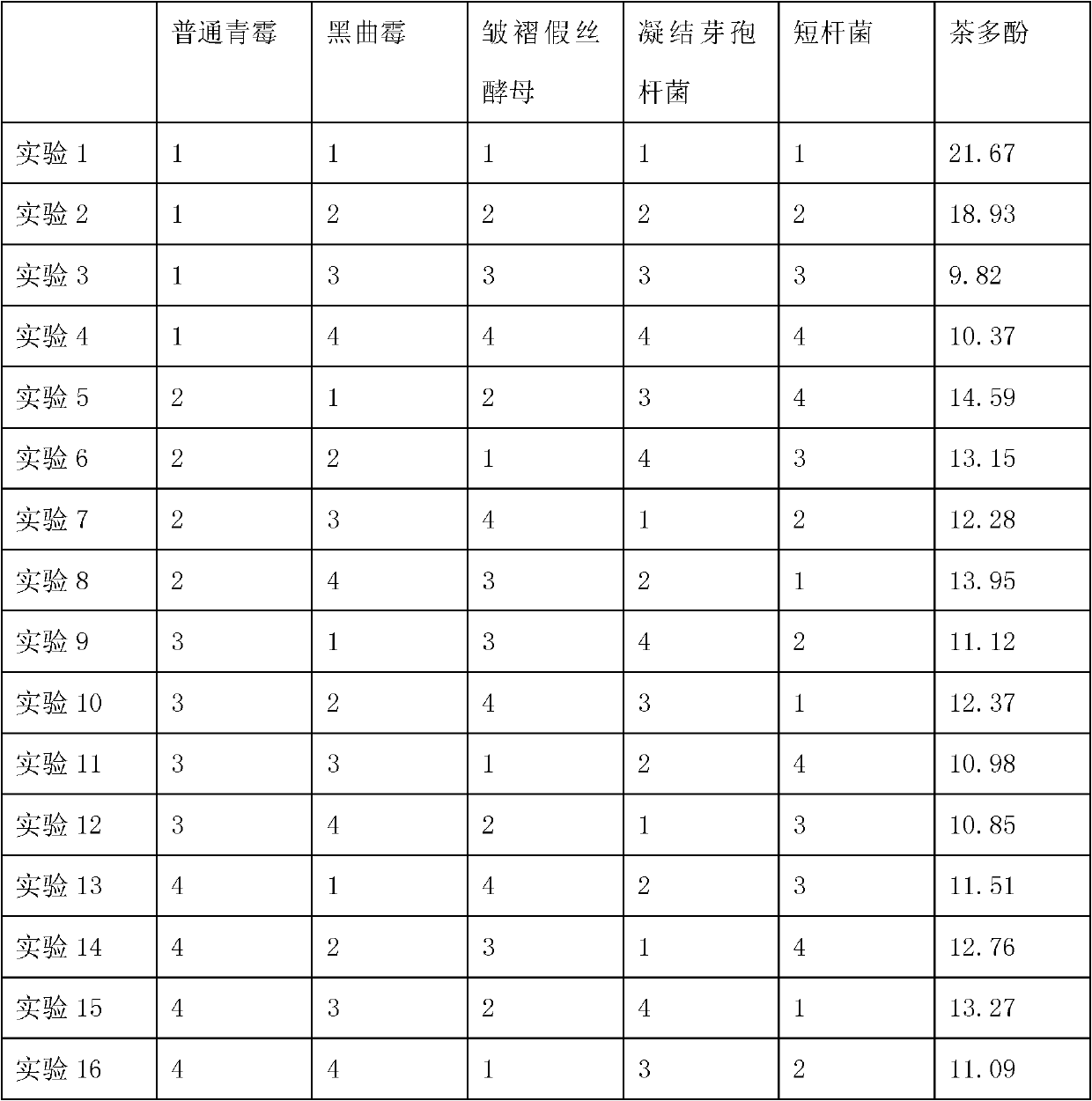A technology for producing fermented tea by combining artificial inoculation and liquid fermentation process
A technology of liquid fermentation and fermented tea, which is applied in the field of food processing, can solve the problems of unautomatic control of the fermentation process, unstable product quality, and long fermentation cycle, and achieve the effects of shortening the fermentation cycle, mellow taste and sweetness, and short fermentation cycle
- Summary
- Abstract
- Description
- Claims
- Application Information
AI Technical Summary
Problems solved by technology
Method used
Image
Examples
Embodiment 1
[0049] Screening of dominant flora:
[0050] Using PCR-DGGE technology to analyze the dominant flora in the solid-state fermentation process of traditional Pu-erh tea, it was found that Penicillium vulgaris, Aspergillus niger, Candida rugosa, Bacillus coagulans and Brevibacterium were the dominant flora in the fermentation process of "Watui" ,
[0051] The screening method is as follows:
[0052] This method is to directly extract the total DNA from the Pu'er tea sample in the fermentation process, then perform PCR amplification, and then use DGGE (denaturing gradient gel electrophoresis) to separate the dominant bands. Each band represents a dominant microorganism. DNA sequencing was performed to confirm that the dominant species were Penicillium vulgaris, Aspergillus niger, Candida rugosa, Bacillus coagulans and Brevibacterium
Embodiment 2
[0054] Proportion screening of optimal strains:
[0055] The screening method is as follows:
[0056] With the dominant bacterial species in embodiment 1, carry out orthogonal experiment according to the different ratio of weight, final determined
[0057] Weight ratio: Penicillium vulgaris: Aspergillus niger: Candida rugosa: Bacillus coagulans: Brevibacterium = 1: 1: 4: 4: 4 (based on the dry weight of the thallus) The effect of the mixed strain is excellent.
Embodiment 3
[0059] Screening of the inoculum amount of bacteria:
[0060]The screening method is as follows:
[0061] According to different inoculum amounts of 0.1%, 0.5%, 1.0%, etc., the dominant strains are increased according to the gradient of 0.5%, until 10%, and fermented. The final inoculum amount is as follows:
[0062] The inoculation amount of bacteria is 0.1%~10%
[0063] The preferred inoculation amount is 0.5% to 2%.
[0064] A particularly preferred inoculation amount is 1-2%.
PUM
 Login to View More
Login to View More Abstract
Description
Claims
Application Information
 Login to View More
Login to View More - R&D
- Intellectual Property
- Life Sciences
- Materials
- Tech Scout
- Unparalleled Data Quality
- Higher Quality Content
- 60% Fewer Hallucinations
Browse by: Latest US Patents, China's latest patents, Technical Efficacy Thesaurus, Application Domain, Technology Topic, Popular Technical Reports.
© 2025 PatSnap. All rights reserved.Legal|Privacy policy|Modern Slavery Act Transparency Statement|Sitemap|About US| Contact US: help@patsnap.com



